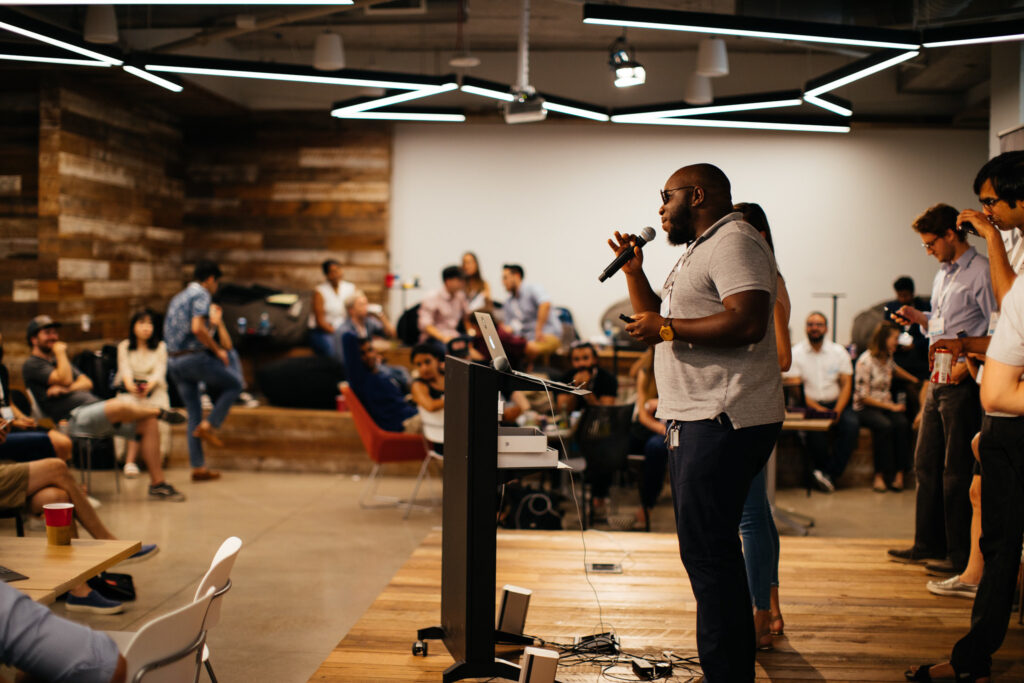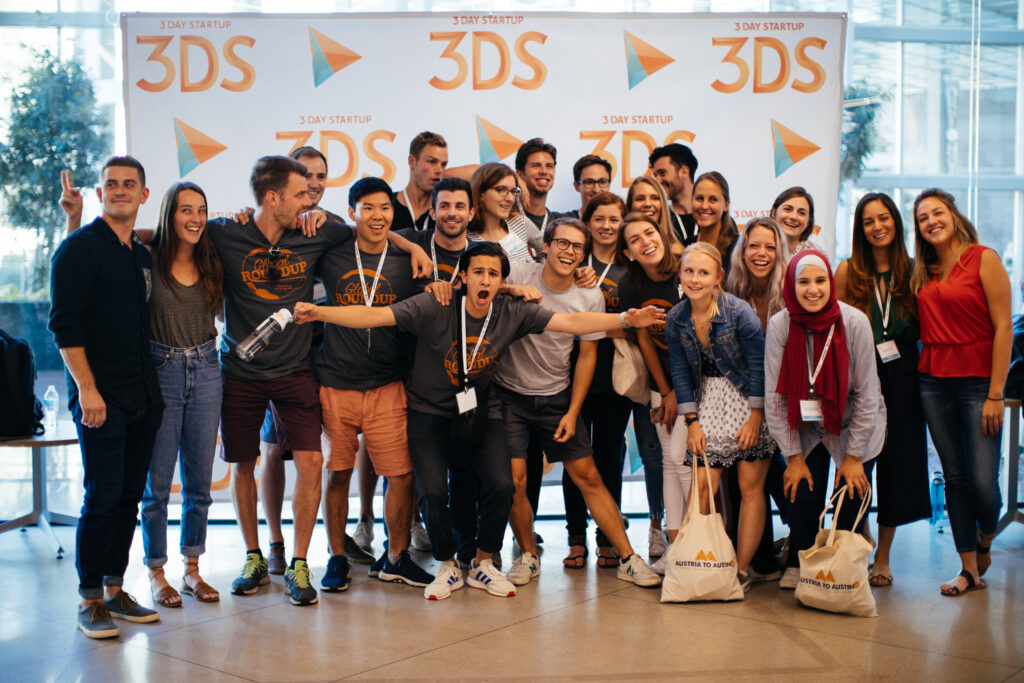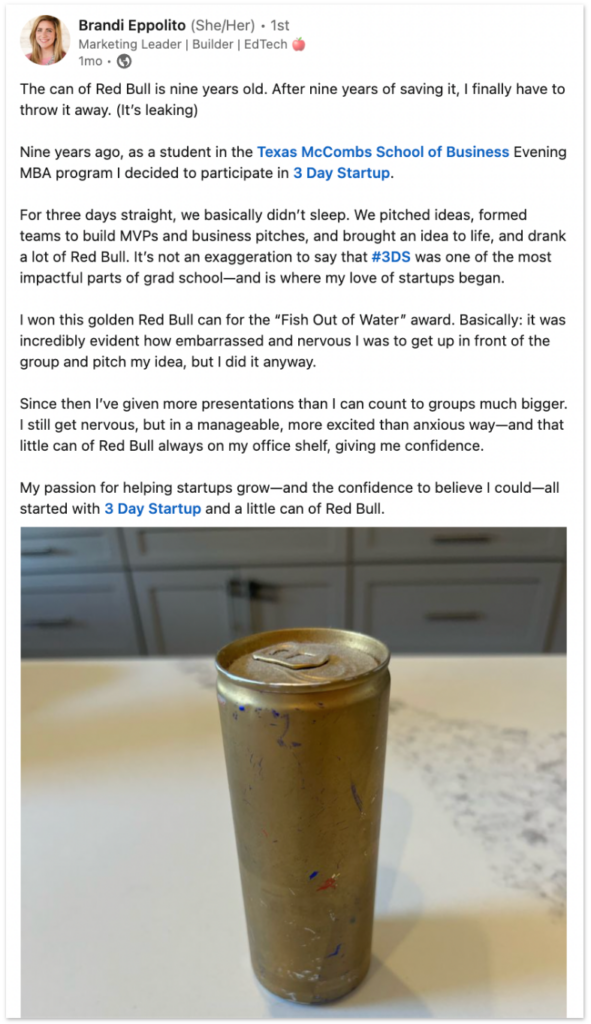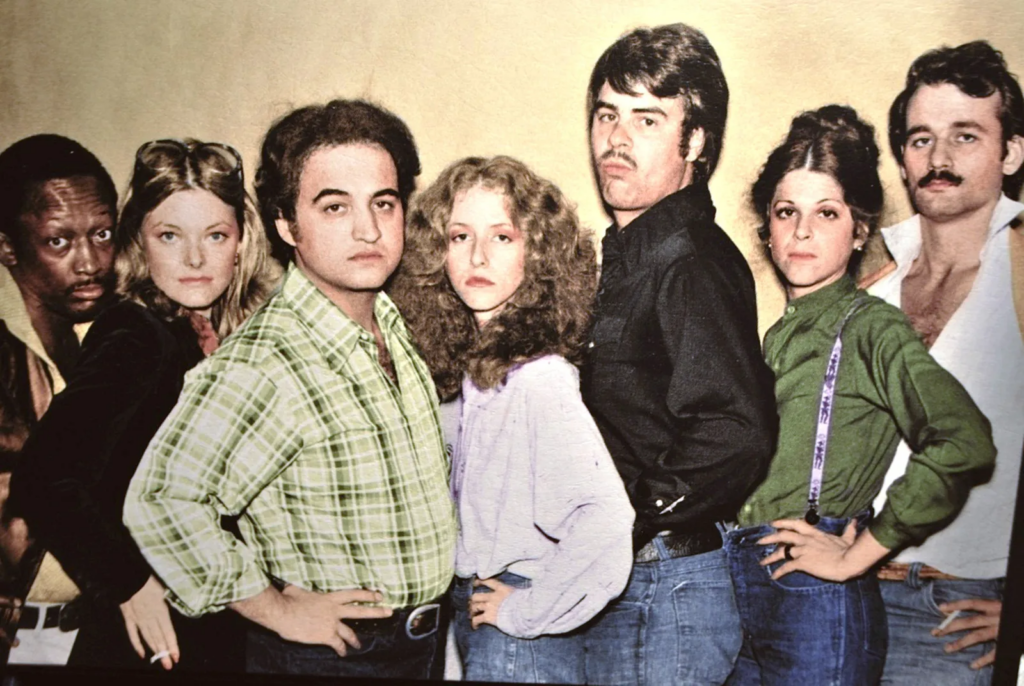In certain communities of practice (participants in startup accelerators, students in courses, attendees of conferences) something special happens before things get too big. This piece is for people wanting to find—and benefit from—these cohorts.
In 2009, some grad students and I started a student group because we were confounded.
Why, we wondered, were so few startups coming out of universities?
Every campus is a concentration of technology-literate smart people unjaded by career life and unbound by the trappings of adulthood. We started running three day programs that were not much more sophisticated than getting students hopped up on Red Bull and seeing what they could create.


The first few events had an almost cult-like energy. Everybody was possessed by the feeling that big things were possible. Two years later, we incorporated as 3 Day Startup and I spent the next decade as CEO scaling it to 20,000 people in 50 countries. The company produced startups that had exits to Google and Etsy, raised $187 million, and progressed through Y Combinator, the most celebrated startup accelerator in the world.
So we had big numbers. But we also had a vibrant community. For many, a vibrant community means an uptick in your Linkedin connections. For us, that meant people drank so many red bulls we started painting them gold and using them as trophies.

The Biggest Winners Were Early
What’s interesting is that most of our massive wins came from early adopters, i.e. the people who got involved in the nascent years. Back when the whole thing was strung together on chicken wire and duct tape.
Tim who sold his company to Google? He created it at Cornell University back when we didn’t even charge for our services. Robin in Thailand who started the biggest ecommerce payment company in SE Asia? That happened before we had raised investor capital. The guy who ended up founding the Silk Road, literally the biggest marketplace to ever exist? He attended our local University of Texas program before we could claim Harvard, MIT, and Stanford as customers.
The point is that in our early days, before we were market leaders or had the stamp of approval from prestige institutions, we attracted a certain type. These people were risk tolerant and willing to take a bet on working with other weirdos doing something interesting.
Welcome Weirdos
“Why join the navy when you can be a pirate?”
—Steve Jobs
This pattern is everywhere. Global tech conference juggernaut SXSW began as a group of people hosting informal house parties back when housing prices in Austin were dirt cheap. Every time I meet an old Austinite they won’t shut up about how SXSW was better back then.
Early Y Combinator is revered as a legendary community of founders. Their two biggest hits—Stripe and AirBnb—began fourteen years ago in the fourth cohort (2009).
The Paypal Mafia, a set of founders and investors involved with early Paypal, is responsible for Linkedin, OpenAI, SpaceX, Uber, Youtube, and more.
The Thiel Fellowship—Peter Thiel’s fund that pays students to drop out of college and build a startup—had its two biggest wins (Figma and Ethereum) in the first five years.
The implication here is that something different happens before programs like this scale and gets wide recognition. But why?

Why You Should Join Early Cohorts
Whether you’re a writer, a builder, a creator, or an entrepreneur, consider giving accelerator, programs, founding communities, and courses a chance at the early stages. They can change your trajectory because they are:
Attractive to risk-takers: the only people willing to take a chance on something new and unproven tend to have an action bias. Their mindset is “let’s try this out” rather than “let’s wait and see what others think.” If you’re the product of the five people you spend time with and you want to take more action and become more risk tolerant, people in early cohorts are who you want to be with.
Less exclusive: Harvard (which is 387 cohorts deep) is a household name, which means it has all manner of gatekeeping: perfect test scores, rich/connected parents, reference letters from notables. Harvard damn sure wouldn’t accept me, but these early programs do.
Less crowded: I like showing up to parties early for the simple reason that I find it easier to meet people when the scene isn’t overwhelming and everyone already hasn’t gotten locked into conversations. Early iterations of programs usually aren’t packed to the gills, and the more intimate environment makes it easier to manage.
More malleable: The early stages are more fluid because the process hasn’t been codified. What this means is that the creators and administrators will be more open to feedback than when they’re at the 20th program cycle. If you share what would be valuable, they are more inclined to suit the experience to your tastes.
Less expensive: Just like moving into the cool neighborhood before everyone knows it’s cool, prices are better when things are unproven.
A Word About Joining Groups Like These
So if you accept the premise of this piece, the next step is to seek out early cohorts. When you find one you want to join, shift your attitude from “what will I get out of this?” to “what can I offer to this group?”
When you’re a member of a cohort, you have influence on how it unfolds. If you’re a positive influence, you are directly supporting the experience and modeling how others can support it. When everyone in the cohort acts this way, the value goes up for everyone.
Think of it like your relationship with your life partner: a good relationship never develops when each party is obsessed with what they are getting out of it. You know your friend with a 423-item checklist of what they want in a partner but hasn’t thought about what they themselves bring to the table? It turns out that collections of humans—whether in relationships or early stage cohorts—are more fulfilling when people emphasize supporting and giving to one another.
Early Cohorts That Catch My Eye
I’m always on the hunt for programs and communities in the early phases. How I identify them is not sophisticated. The tell-tale signs are supportive vibes (new ideas need space to breathe, not negativity), peer pressure to produce (you feel compelled to build/make/do in these environments), and a charismatic leader (early cohorts have not yet codified values and rules, so the leader is the embodiment of those values).
Here are five places that have all three:
Buildspace: Online program for people who want to bring an idea to life: a product, an album, a screenplay, a startup, a game, whatever. I participated in its third cohort and highly recommend it.
Cabin.city: The first network city in the spirit of Balaji Srinivasan’s Network States just celebrated their second anniversary.
Write of Passage: Online writing school that just wrapped up its tenth cohort.
Small Bets: Two year old community of people with day jobs wanting to share ideas, get feedback, and explore entrepreneurship
Minimum Viable Video: it feels incredibly arrogant to include my own course on this list, but I believe in it, so here we are: we’re six cohorts deep building an amazing community of helping people learn video to grow their companies and careers. Join us for the next one in August.
Communities of Practice
The above are communities of practice, which is a fancy name for a group of people who want to focus on doing instead of talking. That’s the type of community and vibe I want to be around in my short time on this earth. I don’t need more Netflix in my life.
I don’t know what you want to build or what idea you want to bring to the world. But whatever it is, joining a community in the first few cohorts can spark the activation energy and find the kink in the growth curve to make whatever you’re making successful.
What early cohorts are you excited about?
Postscript: Four years after I moved on, 3 Day Startup closed its doors. Sigh. This was the company that made my name in Austin and my industry. I wanted to grow old and see it prosper. I’m still processing this and figuring out how to write about it. C’est la vie.
Thanks to early readers: Lavinia Iosub, Chris Wong, Keith Conway, Brent Lyman, Perzen Patel. My newsletter offers weekly tips on entrepreneurship, video, and AI: https://www.camhouser.com/newsletter
